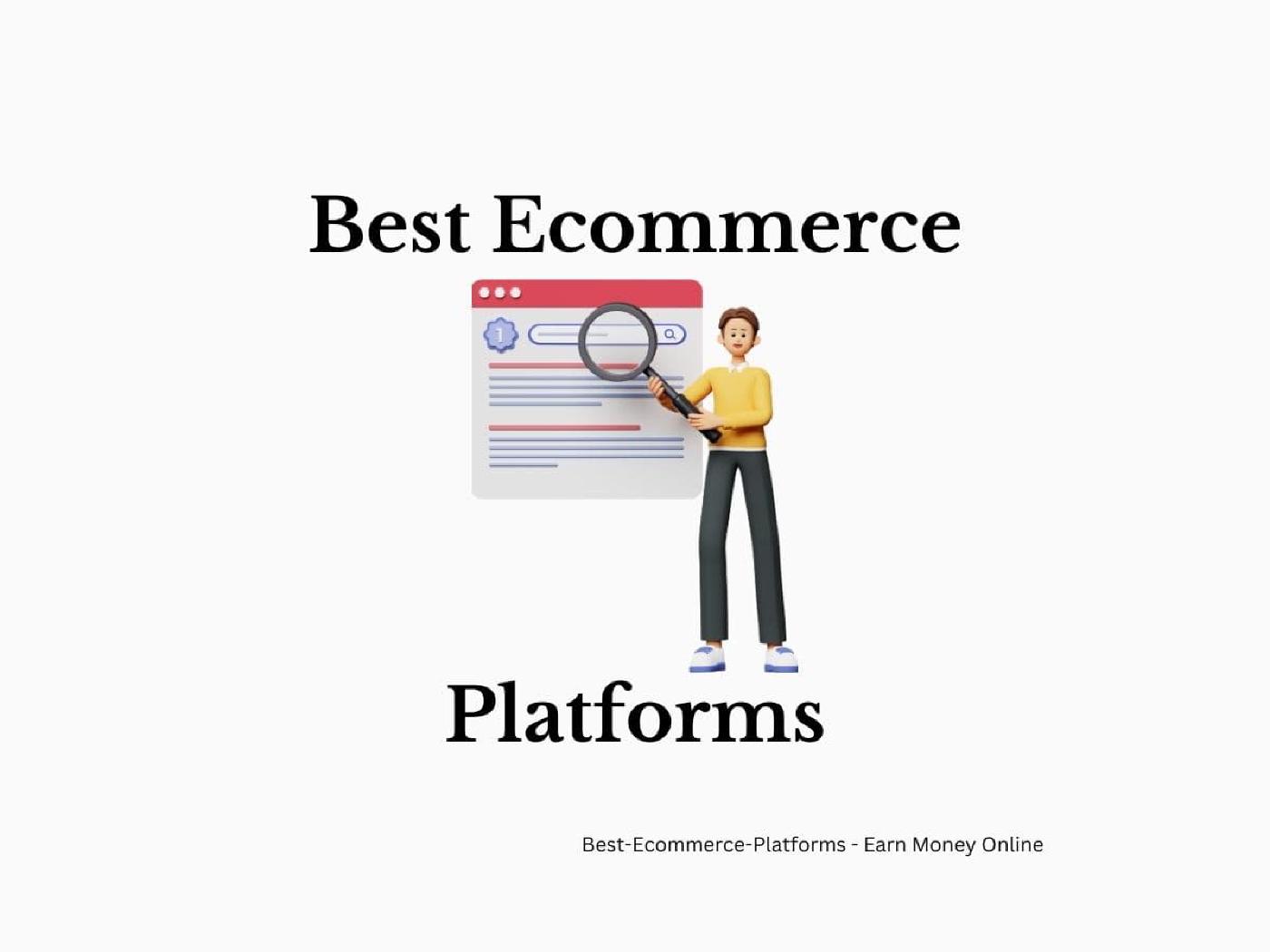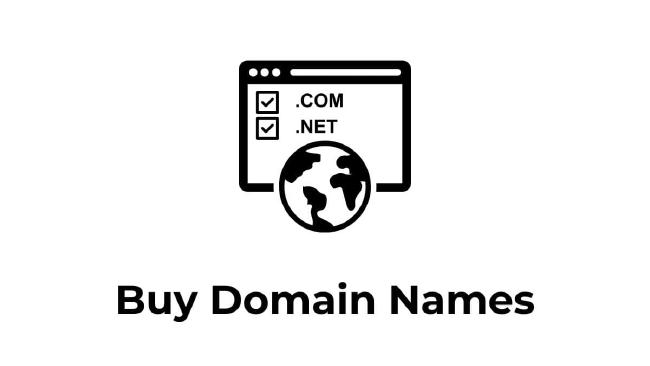Top 5 Ecommerce Platforms
In the ever-evolving landscape of online commerce, choosing the right ecommerce platform to build your site is a critical decision. With numerous options available, each offering unique features and functionalities, navigating the selection process can be daunting. Whether you're an aspiring entrepreneur starting your first online store or a seasoned business owner looking to expand your digital presence, finding the perfect ecommerce platform is key to your success.
3 Ingredients to Launch an Successful Online Store:
- Define Your Business Goals: What are your primary objectives to launch an ecommerce store ? Are you looking to increase sales, expand your reach, or streamline your operations? Clearly outlining your business goals will guide your platform selection process and enable you to prioritize features that are essential to your success.
- Know Your Audience: Understanding your target audience is paramount in creating a seamless shopping experience. Consider factors such as demographics, preferences, and shopping habits to tailor your platform's design and functionality to meet their needs effectively.
- Evaluate Your Product Range: Whether you're selling physical goods, digital products, or services, the nature of your offerings will influence your platform requirements. Consider aspects such as inventory management, product variations, and shipping options when evaluating potential ecommerce platforms.
Now that you have a clear understanding of your business needs, let's explore some of the leading ecommerce platforms available in the market today. Each platform offers unique features, customization options, and pricing structures, allowing you to find the perfect fit for your online store.
Best Ecommerce Platforms
This post will point out the best ecommerce platforms available today, highlighting their key features, pricing structures, ease of use, scalability, and more. By the end, you'll have a clear understanding of which platform aligns best with your business goals and requirements.
Before diving into the array of ecommerce platforms, it's essential to assess your specific needs and objectives. Understanding your business model, target audience, product offerings, and long-term aspirations will help narrow down your options and ensure you choose a platform that can support your growth.
1. Shopify
Want to sell on Shopify ? Shopify stands as one of the most popular and user-friendly ecommerce platforms, catering to businesses of all sizes. With Shopifys extensive app stores and intuitive interface users can create customizable online stores with ease. Key features include:
- User-friendly interface,
- Extensive app store for additional functionalities,
- Secure payment processing,
- Mobile-responsive themes,
- Built-in SEO features.
Explore Shopify Alternative Stores !
2. WooCommerce
Built as an extension of WordPress, WooCommerce is a powerful ecommerce plugin that seamlessly integrates with your existing WordPress website. Ideal for businesses seeking flexibility and customization options, WooCommerce offers:
- Seamless integration with WordPress,
- Extensive library of plugins and extensions,
- Complete control over design and functionality,
- Scalability to accommodate growing businesses,
- Access to WordPress community and support.
3. BigCommerce
BigCommerce is a robust ecommerce platform designed for scalability and growth. With its comprehensive set of features and built-in marketing tools, BigCommerce empowers businesses to create compelling online stores. Key features include:
- Scalable infrastructure to support growing businesses,
- Built-in marketing and conversion tools,
- Seamless integration with leading payment gateways,
- Responsive themes for optimal mobile experience,
- Advanced analytics and reporting capabilities.
4. Magento
Magento is an open-source ecommerce platform renowned for its flexibility and customization options. Tailored for enterprise-level businesses, Magento offers a wealth of features and scalability options. Key features include:
- Open-source flexibility for customization,
- Robust architecture to support large product catalogs,
- Multi-store capabilities for managing multiple brands or websites,
- Advanced SEO features for improved visibility,
- Extensive community support and resources.
5. Squarespace
Squarespace is a popular choice for entrepreneurs and small businesses looking to create stunning, visually appealing websites. While primarily known for its website builder, Squarespace also offers ecommerce functionality with features such as:
- Elegant and customizable templates,
- Integrated blogging platform for content marketing,
- Seamless integration with social media platforms,
- Built-in analytics for tracking website performance,
- Reliable hosting and security features.
Factors to Consider
With a myriad of ecommerce platforms available, it's essential to consider various factors beyond features and pricing. Understanding these key considerations will help you make an informed decision and choose a platform that aligns with your business objectives.
Pricing and Cost
While evaluating ecommerce platforms, consider not only the initial setup costs but also ongoing expenses such as transaction fees, hosting fees, and add-on functionalities. Choose a platform that offers transparent pricing and aligns with your budgetary constraints.
Ease of Use
The ease of use of an ecommerce platform can significantly impact your day-to-day operations. Consider factors such as user interface, customization options, and available support resources when assessing platform usability.
Scalability and Growth Potential
As your business expands, your ecommerce platform should be able to scale seamlessly to accommodate increased traffic, sales volume, and product offerings. Look for platforms that offer scalability and flexibility to support your long-term growth objectives.
Security and Compliance
Security is paramount in ecommerce, especially when handling sensitive customer information and processing online payments. Choose a platform that prioritizes security measures such as SSL encryption, PCI compliance, and regular security updates.
Customer Support and Resources
Reliable customer support and resources are invaluable when running an online store. Ensure that your chosen ecommerce platform offers responsive customer support channels, comprehensive documentation, and a vibrant user community to assist you in times of need.
Conduct a Comparative Analysis
Create a side-by-side comparison of the ecommerce platforms you're considering, highlighting their key features, pricing structures, and suitability for your business requirements.
Utilize Free Trials and Demos
Take advantage of free trials and demos offered by ecommerce platforms to explore their functionality firsthand and assess their ease of use and suitability for your business.
Seek Feedback and Recommendations
Reach out to fellow entrepreneurs, industry peers, and online communities for feedback and recommendations based on their experiences with different ecommerce platforms.
Implement Ecommerce Marketing Strategies
Once your store is set up, it's crucial to implement ecommerce marketing strategies . Techniques such as SEO, social media marketing, and email campaigns are vital. They help increase visibility and drive traffic to your site. Consistent analysis and optimization of these strategies ensure continued growth and success.
Selecting the Best Ecommerce Platform
Selecting the best ecommerce platform to build your site is a pivotal decision that can significantly impact your online success. By understanding your business needs, exploring the top ecommerce platforms available, considering key factors, and making a well-informed decision, you can set the foundation for a thriving online store.
Summary
Whether you opt for the simplicity of Shopify, the flexibility of WooCommerce, the scalability of BigCommerce, the customization of Magento, or the aesthetics of Squarespace, remember that the perfect platform is one that empowers you to realize your ecommerce aspirations and grow your business in the digital age.
Related Posts
Highest Paid Bloggers
In the dynamic world of blogging, a select few have risen to the top, turning their passion for writing into lucrative careers. This article delves into the lives and earnings of the highest-paid bloggers, explores the various monetization methods they employ, and provides insights into how they transformed their blogs into successful businesses.
Read more39 Ways to Earn Money in 60 Minutes
In today's digital age, there are numerous ways to earn money online quickly. You can earn money selling stock photos, renting out your driveway, participating in focus groups and more. Each method is designed to be practical and easy to implement, making it perfect for anyone looking to boost their income in a short amount of time.
Read moreHow to Buy Domain Names
In the digital era, selecting the right platform for purchasing domain names is a critical step in building a strong online presence. The decision impacts not only the ease of managing your domain but also the level of support and features you receive.
Read more


